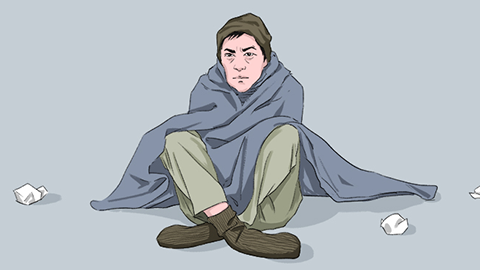What to do about low body temperature caused by hypothyroidism
Hypothyroidism usually refers to hypothyroidism. Generally, low body temperature in hypothyroidism may be caused by factors such as insufficient thyroid hormones, slowed energy metabolism, poor blood circulation, malnutrition, and concurrent anemia. It is recommended to seek timely medical consultation, identify the underlying cause, and improve the condition under a doctor's guidance through hormone supplementation, lifestyle adjustments, and medication. Detailed explanations are as follows:

1. Insufficient thyroid hormones: Hypothyroidism leads to reduced secretion of thyroid hormones, resulting in decreased heat production by the body, which causes low body temperature accompanied by cold intolerance and fatigue. Hormone replacement therapy should be administered as directed by a physician, using medications such as levothyroxine sodium tablets, thyroid tablets, or levothyroxine sodium enteric-coated tablets.
2. Slowed energy metabolism: Insufficient thyroid hormones lead to slower metabolism of carbohydrates and fats, resulting in reduced energy production, which causes low body temperature accompanied by weight gain and hypersomnolence. Adjust the diet by increasing intake of high-quality protein and carbohydrates, ensuring a daily caloric intake of 1500-1800 kcal, and avoiding dieting.
3. Poor blood circulation: Slowed metabolism causes bradycardia and vasoconstriction, reducing the blood's ability to transport heat, leading to cold extremities and low body temperature. Keep warm, wear hats, scarves, and gloves when going out, and avoid staying in cold environments for prolonged periods.
4. Malnutrition: Hypothyroidism affects gastrointestinal absorption, leading to deficiencies in nutrients such as vitamin B12 and iron, worsening metabolic disorders and exacerbating low body temperature, accompanied by pallor and dizziness. Take nutritional supplements such as vitamin B12 tablets, ferrous fumarate tablets, and compound trivitamin iron oral solution as directed by a physician to improve metabolic status.
5. Concurrent anemia: Hypothyroidism may affect red blood cell production, leading to anemia, reduced oxygen-carrying capacity of blood, decreased heat production, and worsened hypothermia, accompanied by fatigue and palpitations. Patients should take medications such as ferrous succinate tablets, iron dextran oral solution, and vitamin C tablets as directed by a physician to correct anemia.
In daily life, maintain a regular routine, avoid staying up late, and ensure 7-8 hours of sleep per day. Wear loose and warm clothing made of materials like wool or cotton. Regularly monitor body temperature changes and improve hypothermia through comprehensive lifestyle adjustments to maintain normal metabolic function.








